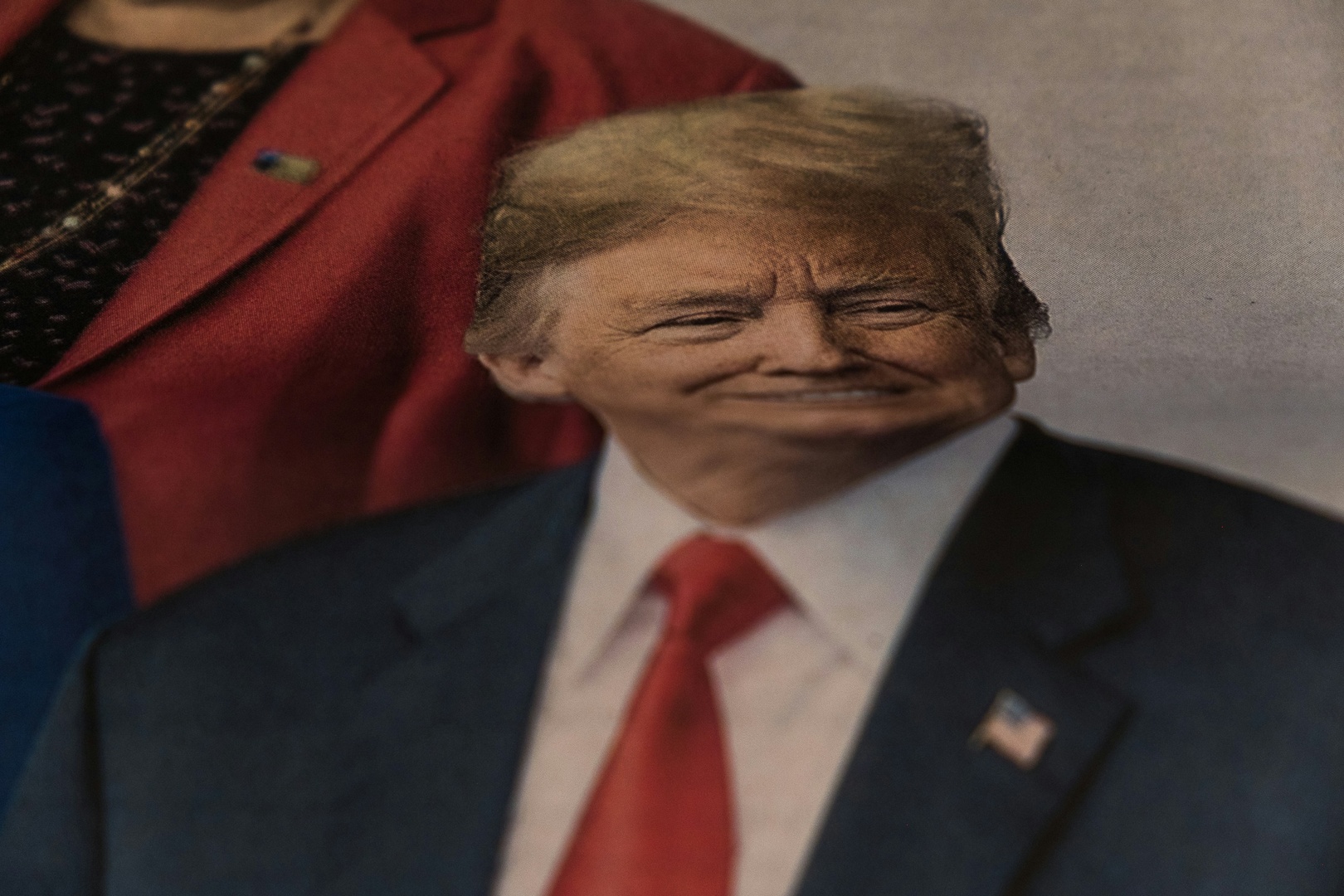{ “seo_title”: “Trump AI Chip Policy Reversal: Impact on Global Technology Landscape”, “content”: “
The Shift in AI Chip Policy
\n
The recent announcement of the Trump AI chip policy reversal marks a significant turning point in the global flow of advanced computing technologies. As the administration prepares to dismantle the Biden administration’s complex three-tier regulatory framework, the implications for international trade, innovation, and geopolitical relationships are profound. This policy shift, set to take effect on May 15, 2025, represents a fundamental rethinking of how the U.S. approaches technology governance, particularly in the realm of artificial intelligence (AI).
\n\n
Understanding the Three-Tier System
\n
The soon-to-be-eliminated Biden rule established a hierarchical structure for global technology access that aimed to control the dissemination of advanced AI chips. Under this framework, the first tier included 17 countries plus Taiwan, which would have enjoyed unrestricted access to cutting-edge AI technologies. The second tier comprised approximately 120 countries subjected to strict numerical caps on imports, while the third tier, which included adversaries like China, Russia, Iran, and North Korea, faced a complete ban on access to these technologies.
\n
This structured approach aimed to prevent advanced technologies from reaching nations of concern through intermediaries while still granting access to allies and neutral countries. However, critics argued that the complexity of the system would create significant compliance burdens and would inadvertently push international partners toward alternative suppliers, ultimately undermining U.S. technological leadership.
\n\n
The New Approach Taking Shape
\n
In stark contrast to the tiered system, sources indicate that the Trump administration is considering a global licensing regime supported by inter-governmental agreements. This proposed framework promises greater flexibility while maintaining necessary controls over sensitive technology. The timing of this announcement is particularly noteworthy, occurring as President Trump prepares for a diplomatic trip to the Middle East, where frustration over existing restrictions on AI chip acquisitions has been expressed by key partners such as Saudi Arabia and the United Arab Emirates.
\n
Such a shift could open doors for negotiations that may lead to more favorable terms for these nations, particularly as they seek to establish themselves as emerging AI powerhouses.
\n\n
Market Reaction and Industry Impact
\n
The initial market reaction to the policy reversal has been notable, with shares of Nvidia, a dominant player in the AI chip manufacturing space, rising by 3% following the announcement. However, volatility remains, as evidenced by a 0.7% dip in after-hours trading. Nvidia’s CEO, Jensen Huang, has consistently opposed increasing restrictions, advocating for U.S. companies’ ability to tap into the burgeoning Chinese market, which he predicts could become a $50 billion opportunity for AI chips in the coming years.
\n
It is crucial to note that this policy shift does not represent a complete abandonment of export controls. The Trump administration has already demonstrated a willingness to take stringent actions against China, including a ban on Nvidia’s H20 chip sales, which resulted in significant financial repercussions for the company.
\n\n
Global Winners and Losers
\n
The implications of this policy reversal extend beyond the U.S. borders, creating a complex landscape of potential winners and losers in the global technology arena. Countries like India and Malaysia, which faced chip restrictions under the Biden rule, may now find temporary relief. For instance, Malaysia’s Oracle Corporation could benefit significantly from the easing of restrictions, as the company has ambitious plans for a massive data center expansion.
\n
In addition, Middle Eastern nations, particularly the UAE and Saudi Arabia, could see considerable advantages in negotiating favorable terms for AI chip acquisitions. Trump’s expressed interest in easing restrictions for the UAE, coupled with its pledge to invest up to $1.4 trillion in U.S. technology and infrastructure, illustrates the high stakes involved and the lengths to which these nations are willing to go to secure their positions in the AI landscape.
\n\n
Uncertainty Ahead
\n
As Axios reports, the Trump administration is currently formulating a new control scheme that could emerge as either a new rule or an executive order. This transitional phase introduces significant uncertainty for companies like Nvidia regarding the regulatory environment they will face in the coming months. While a new framework takes shape, the administration has indicated that existing chip export controls will continue to be enforced.
\n
One potential aspect of the new approach might include imposing controls specifically on countries that have diverted chips to China, such as Malaysia and Thailand. This introduces a layer of complexity that industry stakeholders must navigate, as the landscape evolves rapidly.
\n\n
Balancing Competing Priorities
\n
The Biden administration’s initial export controls aimed to limit access to chips critical for advanced AI development, particularly focusing on preventing Chinese firms from circumventing existing restrictions. As the Trump administration seeks to replace this framework, the challenge lies in establishing a balanced approach that addresses national security concerns while simultaneously fostering U.S. commercial interests.
\n
Crafting agreements with a diverse array of countries eager to acquire advanced AI chips will require navigating intricate diplomatic relationships and potentially developing numerous separate policy frameworks. The Commerce Department has not yet outlined a specific timeline for finalizing or implementing any new rules, leaving stakeholders in a state of anticipation.
\n\n
The Future of AI Technology and International Relations
\n
The shift in Trump AI chip policy underscores a broader emphasis on American competitiveness and innovation while still maintaining oversight over technologies with national security implications. As officials work to develop a replacement framework, the global AI chip market remains in a state of flux, and the resulting policy decisions are likely to have profound implications for technological advancement, international relations, and corporate strategies in the rapidly evolving landscape of artificial intelligence.
\n\n
Conclusion
\n
Ultimately, the Trump administration’s approach signals a departure from a more cautious and structured regulatory framework towards a more flexible and potentially collaborative model. The outcome of these changes will not only reshape the U.S. position in the global technology landscape but also redefine relationships between nations as they vie for dominance in the burgeoning AI sector.
\n”, “excerpt”: “The Trump AI chip policy reversal signifies a major shift in global technology governance, dismantling Biden’s export controls. This change aims to promote innovation, affecting international trade and geopolitical dynamics. As the U.S. pivots to a more flexible licensing regime, the implications for stakeholders like Nvidia, as well as nations vying for AI supremacy, are profound. The evolving landscape poses opportunities and challenges, with significant consequences for national security and commercial interests in the AI sector.”, “meta_description”: “Trump’s AI chip policy reversal reshapes global tech governance, impacting innovation and international trade. Explore the implications on AI technology and market dynamics.”, “tags”: [“AI chips”, “export controls”, “Trump administration”, “Biden administration”, “Nvidia”, “global technology”, “innovation”, “national security”, “geopolitical relationships”], “technical_keywords”: [“advanced AI chips”, “export controls”, “global licensing regime”], “key_points”: [ “Trump’s policy shift aims to promote innovation and simplify regulations.”, “The Biden three-tier system limited access for many countries, creating compliance burdens.”, “Nvidia and other companies may benefit from eased restrictions.”, “Middle Eastern nations could negotiate more favorable terms for AI technology.”, “The regulatory landscape remains uncertain as new frameworks are developed.” ], “questions”: [ {“question”: “What changes are being made to the AI chip export controls?”, “answer”: “The Trump administration plans to dismantle Biden’s three-tier regulatory framework, potentially replacing it with a global licensing regime.”}, {“question”: “How will these changes impact companies like Nvidia?”, “answer”: “Nvidia may see increased opportunities for sales and market expansion, especially in China, although existing export controls will still apply.”}, {“question”: “What are the implications for international relations?”, “answer”: “The policy shift could foster closer ties with countries like the UAE and Saudi Arabia while complicating relations with nations like China.”} ], “schema”: { “@context”: “https://schema.org”, “@type”: “NewsArticle”, “headline”: “Trump AI Chip Policy Reversal: Impact on Global Technology Landscape”, “datePublished”: “2023-05-08”, “dateModified”: “2023-05-08”, “author”: { “@type”: “Person”, “name”: “Technology Analyst” }, “publisher”: { “@type”: “Organization”, “name”: “Tech Insights”, “logo”: { “@type”: “ImageObject”, “url”: “https://www.techinsights.com/logo.png” } }, “image”: [“https://www.techinsights.com/images/trump-ai-policy.jpg”], “mainEntityOfPage”: { “@type”: “WebPage”, “@id”: “https://www.techinsights.com/trump-ai-chip-policy” }, “articleSection”: “Tech Trends”, “keywords”: “AI chips, export controls, Trump administration, Biden administration, Nvidia, global technology, innovation, national security, geopolitical relationships”, “description”: “Trump’s AI chip policy reversal reshapes global tech governance, impacting innovation and international trade. Explore the implications on AI technology and market dynamics.” }, “faq_schema”: { “@context”: “https://schema.org”, “@type”: “FAQPage”, “mainEntity”:



